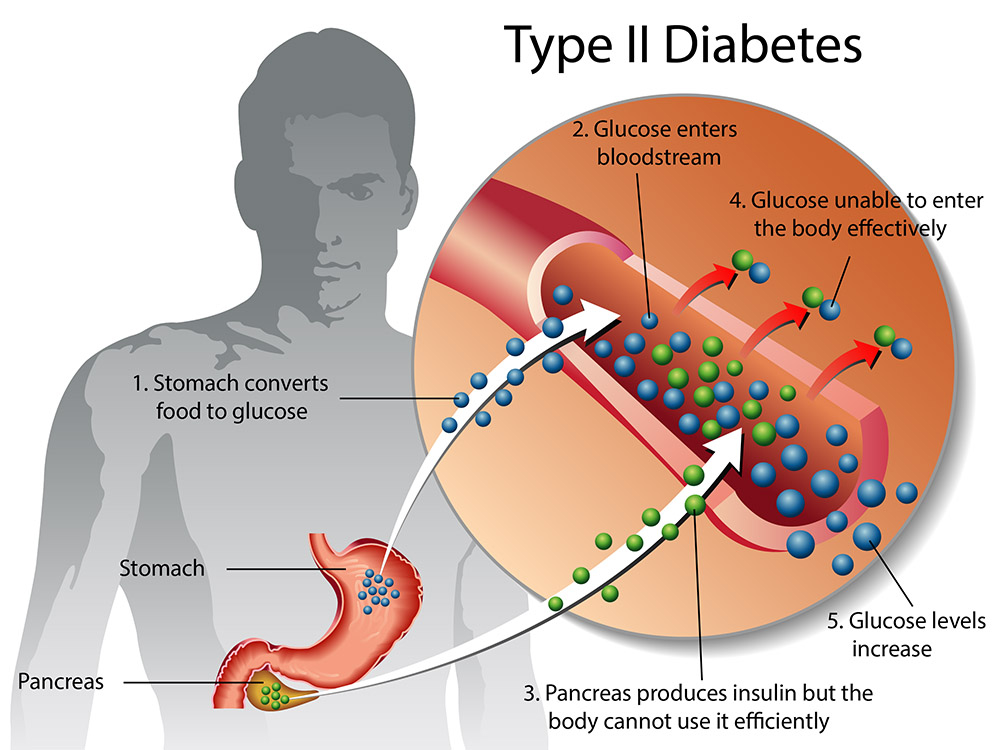Type 2 diabetes is a chronic condition that affects millions of people worldwide. It occurs when the body becomes resistant to insulin, a hormone that helps regulate blood sugar levels. Over time, high blood sugar levels can lead to a range of complications, from neuropathy to retinopathy. In this blog post, we’ll explore some of the most common complications of type 2 diabetes and how to manage them.

Neuropathy
Neuropathy is a type of nerve damage that occurs when high blood sugar levels damage the small blood vessels that supply the nerves. This can cause tingling, numbness, or burning sensations in the hands, feet, or legs. In severe cases, neuropathy can lead to foot ulcers, infections, and even amputation.
To manage neuropathy, it is important to control blood sugar levels through regular exercise, a healthy diet, and medication as prescribed by a healthcare provider. Pain relievers, antidepressants, and anticonvulsants may also be prescribed to manage the symptoms of neuropathy.
Retinopathy
Retinopathy is a condition that affects the eyes and is caused by damage to the blood vessels in the retina. It can cause blurred vision, floaters, or even complete vision loss. People with type 2 diabetes are at an increased risk of developing retinopathy, especially if their blood sugar levels are poorly controlled.
To manage retinopathy, it is important to have regular eye exams and to control blood sugar levels through lifestyle changes and medication. Laser surgery and medication injections may also be used to treat more advanced cases of retinopathy.
Kidney disease
Type 2 diabetes can also affect the kidneys, leading to chronic kidney disease (CKD). This occurs when the small blood vessels in the kidneys are damaged, leading to decreased kidney function. In severe cases, CKD can lead to kidney failure, requiring dialysis or a kidney transplant.
To manage kidney disease, it is important to control blood sugar levels, blood pressure, and cholesterol through medication and lifestyle changes. A healthcare provider may also recommend a low-protein diet to reduce the workload on the kidneys.

Cardiovascular disease
People with type 2 diabetes are at an increased risk of developing cardiovascular disease, including heart disease and stroke. This is because high blood sugar levels can damage the blood vessels and increase the risk of plaque buildup, leading to narrowing of the arteries.
To manage cardiovascular disease, it is important to control blood sugar levels, blood pressure, and cholesterol through lifestyle changes and medication. A healthcare provider may also recommend a low-sodium diet and regular exercise to improve cardiovascular health.
Type 2 diabetes can lead to a range of complications, from neuropathy to cardiovascular disease. However, with proper management and care, these complications can be prevented or managed effectively. If you have type 2 diabetes, it is important to work closely with a healthcare provider to develop a personalized treatment plan that meets your individual needs.
Consult our team at Top Notch Vitality in Dallas for any health related issues.


